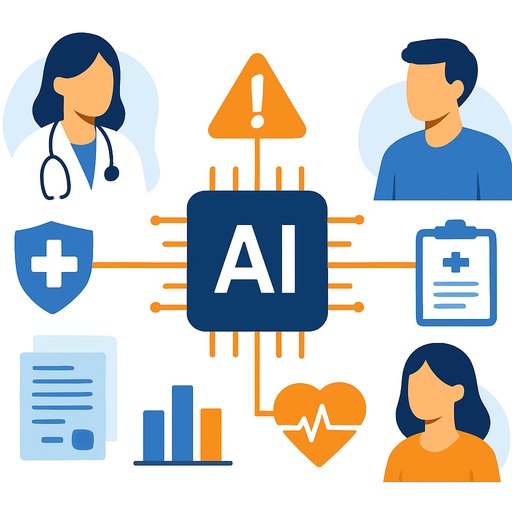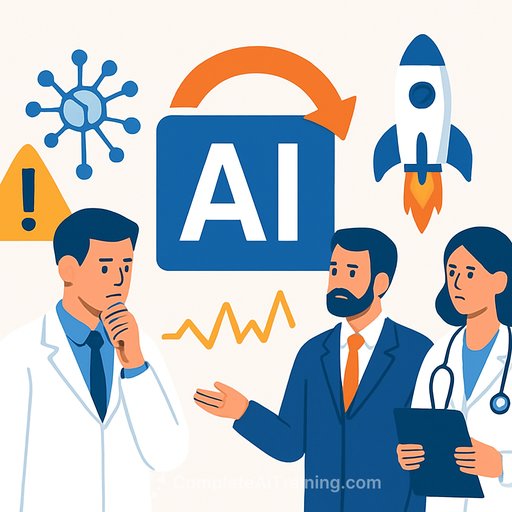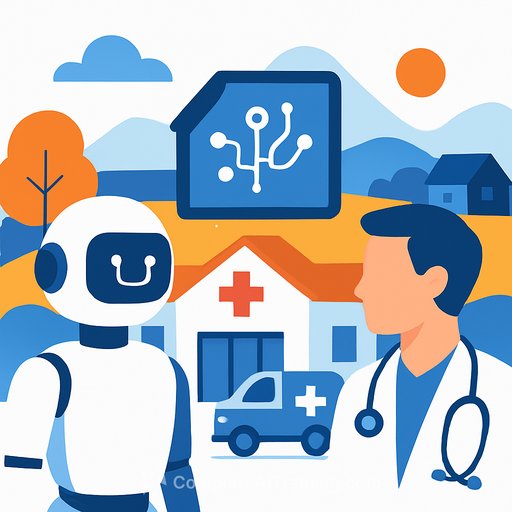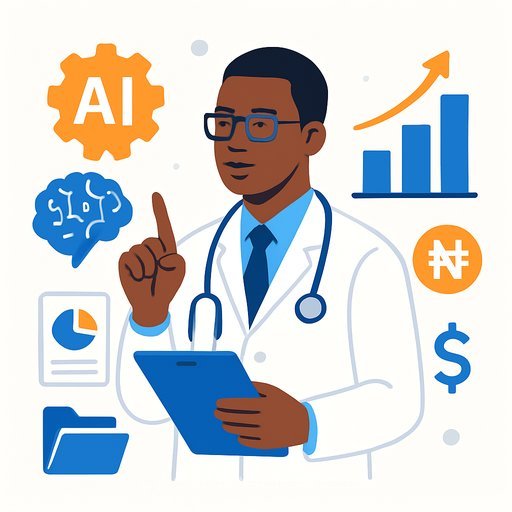Healthcare's Advantage in an AI-Driven Job Market
AI is reshaping office work, but healthcare stands apart. Roles rooted in hands-on care, trust, and empathy remain resilient, and demand is rising. If you work in healthcare, the market is tilting in your favor.
OpenAI CEO Sam Altman put it plainly: "A job that I'm confident will not be that impacted is nurses." That reflects what many of you see every day-care is human. Advice can be automated; presence cannot.
What Tech Leaders Are Saying
Altman expects many phone and computer-based customer support roles to be replaced by AI. Programming roles are more uncertain-AI boosts productivity, but the net impact on jobs is unclear.
Google DeepMind's Demis Hassabis echoed the same point about care: people don't want a robot nurse. The empathy, judgment, and trust you deliver are the differentiators.
The Jobs Outlook in Numbers
The U.S. economy is set to add about 5.2 million jobs over the next decade, with healthcare and social assistance leading growth. Senior care and disability services are projected to expand by 21%, adding over 528,000 jobs by 2034, driven by an aging population and long-term care needs.
Even with strong fundamentals, growth can cool. In August 2025, healthcare added 31,000 jobs-below the 12-month average of 42,000. Policy shifts (like Medicaid cuts) and broader headwinds can slow hiring, but the sector remains one of the steadiest. For a deeper view, see the U.S. Bureau of Labor Statistics projections: BLS Employment Projections.
What This Means for Your Career
- Double down on uniquely human skills. Empathy, patient education, trust-building, and clinical judgment will keep you in demand.
- Move where demand is surging. Gerontology, home health, behavioral health, care coordination, and disability services are growth areas.
- Use AI to cut admin load-not replace care. Clinical scribes, documentation assistants, and scheduling tools can give you hours back each week.
- Own human-in-the-loop tasks. Oversee triage bots, verify AI-generated notes, and apply clinical oversight. Your license and judgment matter.
- Strengthen interdisciplinary value. Learn basic data literacy, quality improvement, and care pathway design to impact outcomes and costs.
- Protect privacy. Stay sharp on HIPAA, data handling, and AI tool compliance. If it isn't compliant, don't use it.
- Stack credentials that pay off. Consider certifications in care management, geriatrics, behavioral health, or informatics.
Frontline Reality: What's Unlikely to Automate
- Bedside care, de-escalation, and end-of-life support
- Clinical assessment in ambiguous, fast-changing situations
- Trust-based conversations with patients and families
- Interventions requiring fine motor skills and judgment
Where AI Can Help You Today
- Drafting notes and prior auth letters with final human review
- Summarizing long charts or guidelines for quick decisions
- Patient education materials customized to literacy level
- Workflow checklists, shift handoff templates, and audit prep
Risks to Watch
- Hiring pauses tied to reimbursement cuts or budget cycles
- Overreliance on AI outputs without proper clinical oversight
- Shadow IT-unapproved tools that create compliance exposure
Practical Next Steps (30-60 minutes each)
- Identify one admin task to automate with an approved AI tool (e.g., note drafting). Track time saved for your manager.
- Add a line to your resume: "Implemented AI-assisted documentation, reducing charting time by X%." Concrete wins matter.
- Meet with your compliance lead to align on approved tools and data policies.
- Explore a short skills course on AI for healthcare workflows or informatics to stay current. For curated options by role, see AI courses by job.
Bottom Line
Healthcare remains one of the few bright spots in a market being rewritten by AI. Your work stays valuable because it is human at its core. Use AI to clear the busywork, invest in growth areas like senior and disability care, and keep your clinical judgment at the center.
The future favors clinicians who pair empathy with efficient systems. That's your edge-and it's hard to replace.
Your membership also unlocks:






